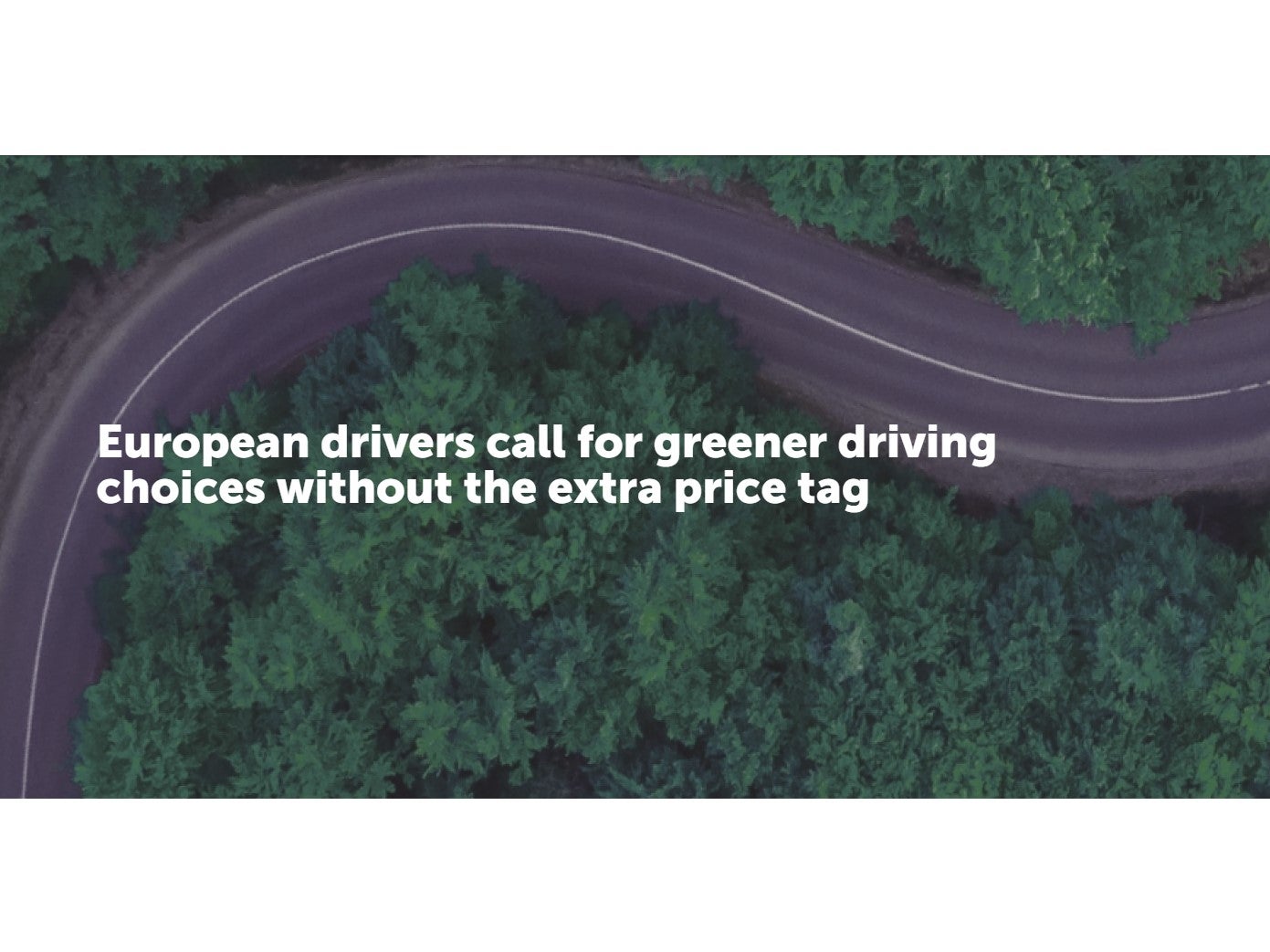
With prices of many consumer goods rising considerably over the past 18 months, there are signs the willingness to purchase sustainable products has decreased. What does this mean for the auto industry and aftermarket lubricants?
With scientists delivering a ‘final warning’ on the issue of climate crisis, it is now more important than ever that sustainability is considered by both businesses and consumers. However, with prices rising and household budgets under pressure, picking sustainable options is proving to be much harder due to their often higher price bracket.

Discover B2B Marketing That Performs
Combine business intelligence and editorial excellence to reach engaged professionals across 36 leading media platforms.
A new report commissioned for PETRONAS Lubricants International (PLI) highlighted that cost is a significant barrier to reaching sustainability goals, as 38% call for prices to be brought down and better choices to be given for those with differing vehicle needs (22%).
Alongside this, the report also showed that 57% of Brits say they want to help contribute to a greener automotive industry but over half (56%) wouldn’t be willing to pay any more for alternative products. In fact, Brits are the least willing to pay more.
We spoke to Marsha Thomas, country manager, UK & Ireland at PLI, to discuss these findings as well as to touch on what more the industry could be doing to improve these figures.

Just Auto (JA): Could you tell me a little bit about your job role?
Marsha Thomas (MT): I am the UK and Ireland country manager for PETRONAS Lubricants International (PLI) and I am the first woman to be appointed to the role.
I’ve been at PLI for over seven years now, and the strategic and technical knowledge of the global lubricants industry I have gained over those years has helped me to facilitate the business needs of PLI’s clients, contributing to incremental business growth.
Having said that, this was my first time in a brand new role that’s completely different from what I have done before. I used to live and breathe marketing but in this role as head of the UK market, I am taking on more commercial aspects of the business.
It’s a been a great challenge to lead the team and all the different functions, as well as getting to meet customers and growing the UK business from strategy to execution. I am whole heartedly embracing it.
The report showed that one of the key findings was ‘cost is a significant barrier to reaching sustainability goals’. Could you discuss these findings?
Global inflation rates hit an all-time high in 2022, and prices of everyday goods like groceries and energy have risen significantly. As a result, consumers everywhere have tightened up on spending, particularly on non-essential items.
It’s true that the cost of sustainable products is usually higher than ‘traditional’ products because the raw materials are more expensive. They are also produced in smaller quantities, meaning they’re of better quality and have a lower environmental impact.
Global inflation rates hit an all-time high in 2022, and prices of everyday goods like groceries and energy have risen significantly.
Now that there is a decrease in disposable income, our research found that consumers are less willing to spend money on sustainable products, and perhaps there’s a question of – ‘why should I have to pay more to be more sustainable?’
Therefore, PLI and the automotive sector at large are committed to drive the transition to sustainability with technological solutions, products, and expertise. It’s our mission to help drivers improve the performance of their vehicles and continue to develop products that reduce carbon emissions and use less packaging.
The report also showed that ‘Brits are the least willing out of all countries to pay more for greener products’. Could you explain this?
We carried out our sustainable driving research of 7,000 consumers in six countries and Britain indeed came out on top for being the least willing to pay more for sustainable products. We found that countries such as Italy, Spain, Poland, and France are willing to pay a small percentage more for products that support greener driving.
This could be down to a lack of understanding of how greener products can be better for both vehicles and for the planet. The research also found that on average, 12% percent of Europeans do not know what could be done to reduce their car’s carbon footprint and out of all six countries surveyed, Britain is the nation that knows the least about how to reduce it (31%).
It is also important to note the differences in the economies of each market. Each nation faces its own cost and spending pressures, as well as a difference in overall behaviour when it comes to taking action to be more sustainable.
If consumers are unaware of the benefits behind sustainable products versus traditional ones, it is unlikely that they’d pay more for something they can have for less. However, this is where companies like PLI play a vital role. We must help educate consumers, so they are aware of the benefits behind sustainable automotive products, so we can all help the nation move towards a more sustainable future, and not break the bank doing so.
What more do you think the industry could/should be doing to change these results?
There is an opportunity for industry leaders to pave a clear roadmap and promote awareness of sustainable options to drivers so they can make more informed choices.
It’s not just about the fuel we put in our cars. It’s up to businesses like ours to show motorists that there are affordable solutions and steps we can still take, such as the choice of fluid lubricants used. For example, PETRONAS Syntium can achieve a fuel saving of 3% and optimise thermal efficiency, leading to overall savings and better vehicle performance. Even the packaging of products, such as opting for bag-in-box or recycled plastic can make a difference.
Within the lubricant industry, it’s key we ensure customers have visibility around reliable and sustainable brands that align with both their ethos and finances, as meeting these demands is crucial to growth and success.
What do you think the future holds for these issues discussed in the report?
It’s undeniable that 2023 brings a fresh set of customer challenges, largely centred around sustainability, ethics, and the rising cost of living. The future beyond that is unclear.
However, we’re at a time where the industry is pushing harder and innovating even more to transition to solutions that enhance our planet. Businesses should be making a conscious effort to show motorists that there are affordable, sustainable solutions available to them.
At PLI we are dedicated to helping our customers understand that taking care of your vehicle doesn’t need to be a difficult or daunting task.
At PLI we are dedicated to helping our customers understand that taking care of your vehicle doesn’t need to be a difficult or daunting task. We want to change consumers’ mindsets to help them make the best choice for the car and show that it is possible to make positive changes in the automotive industry in 2023 and beyond.






